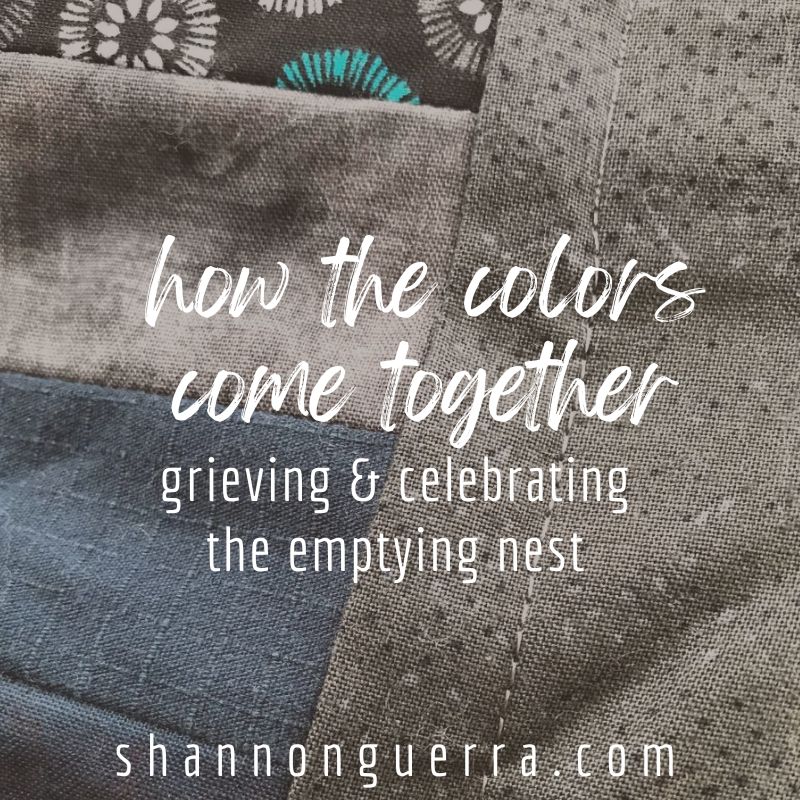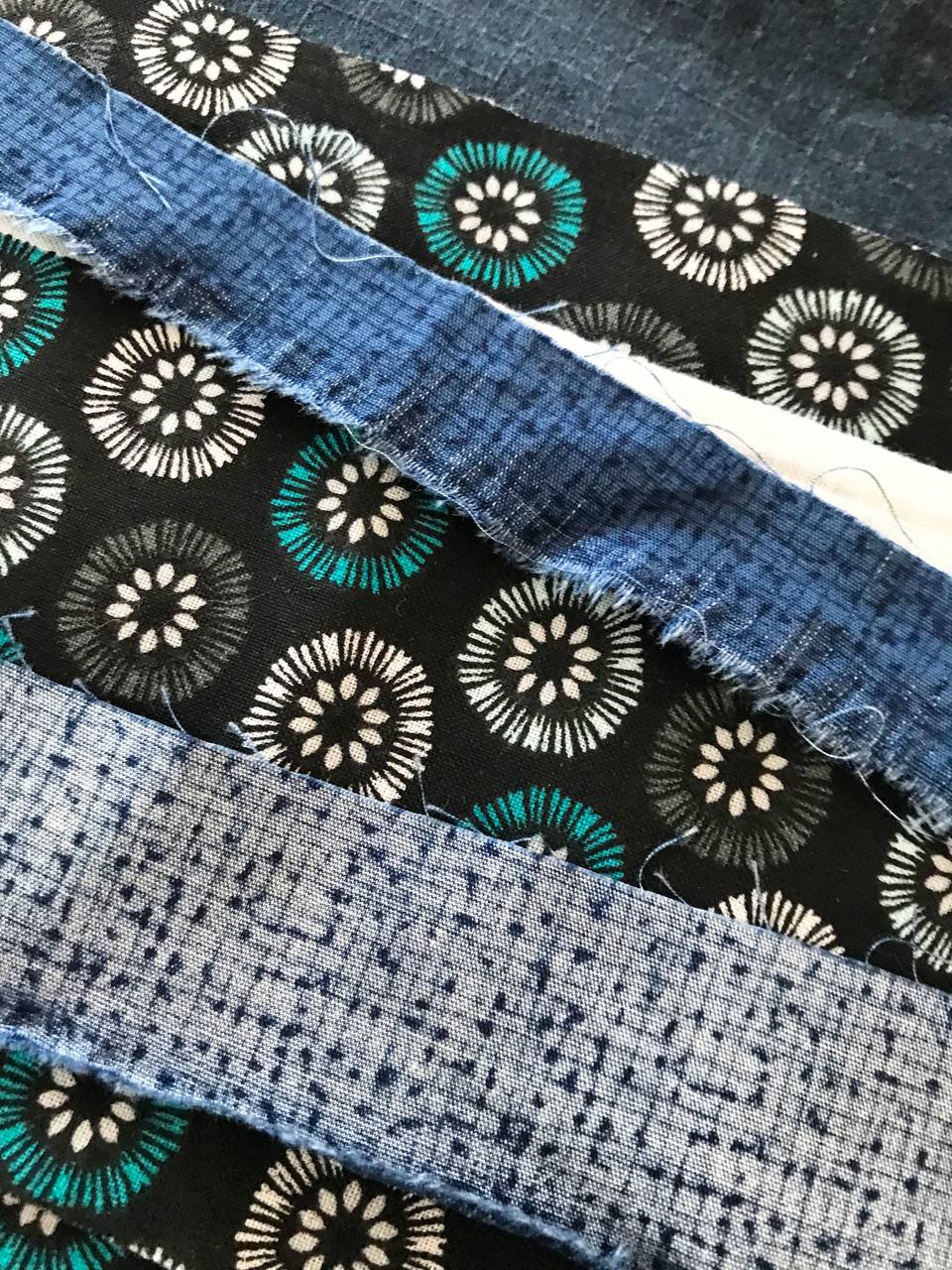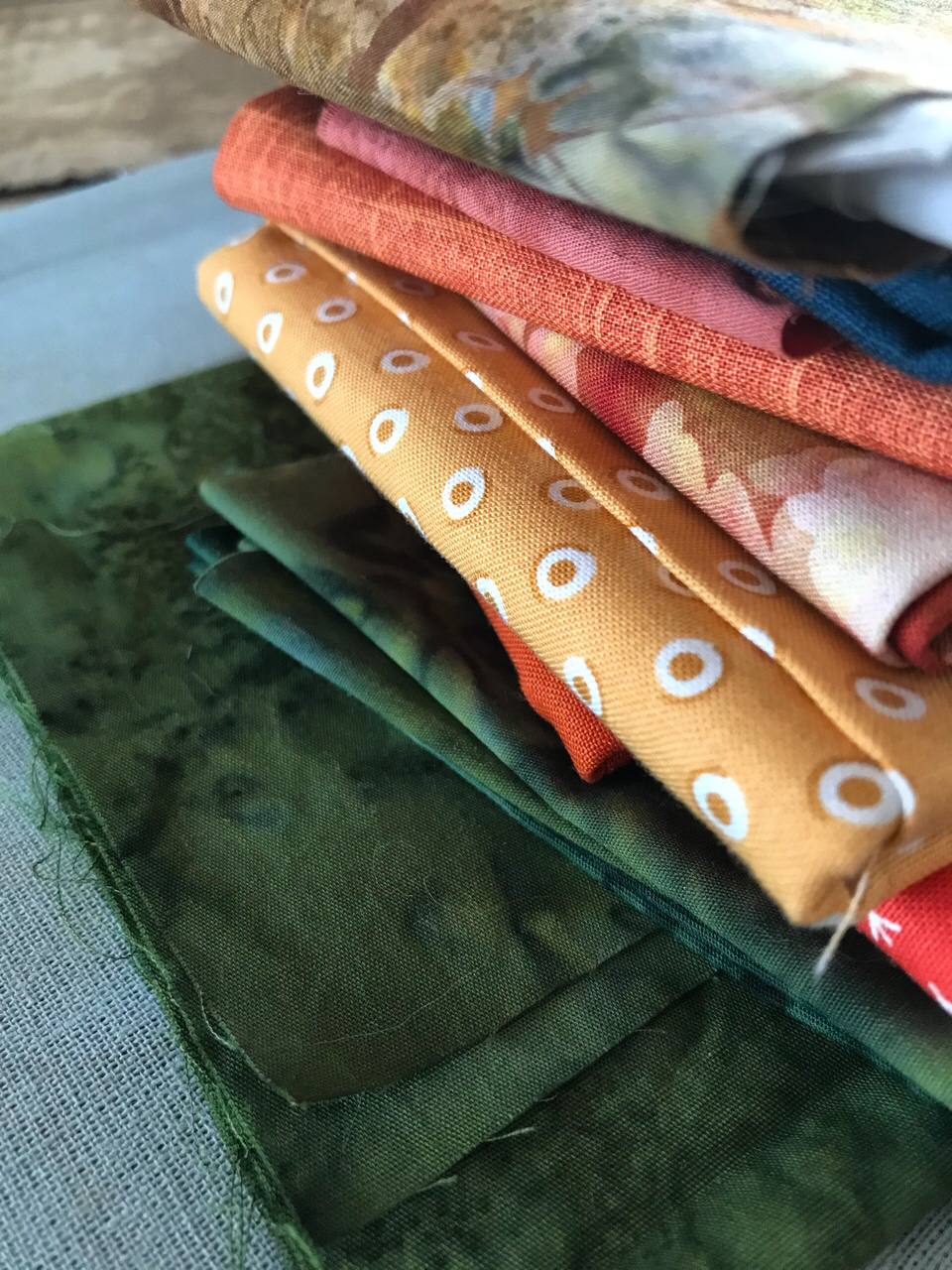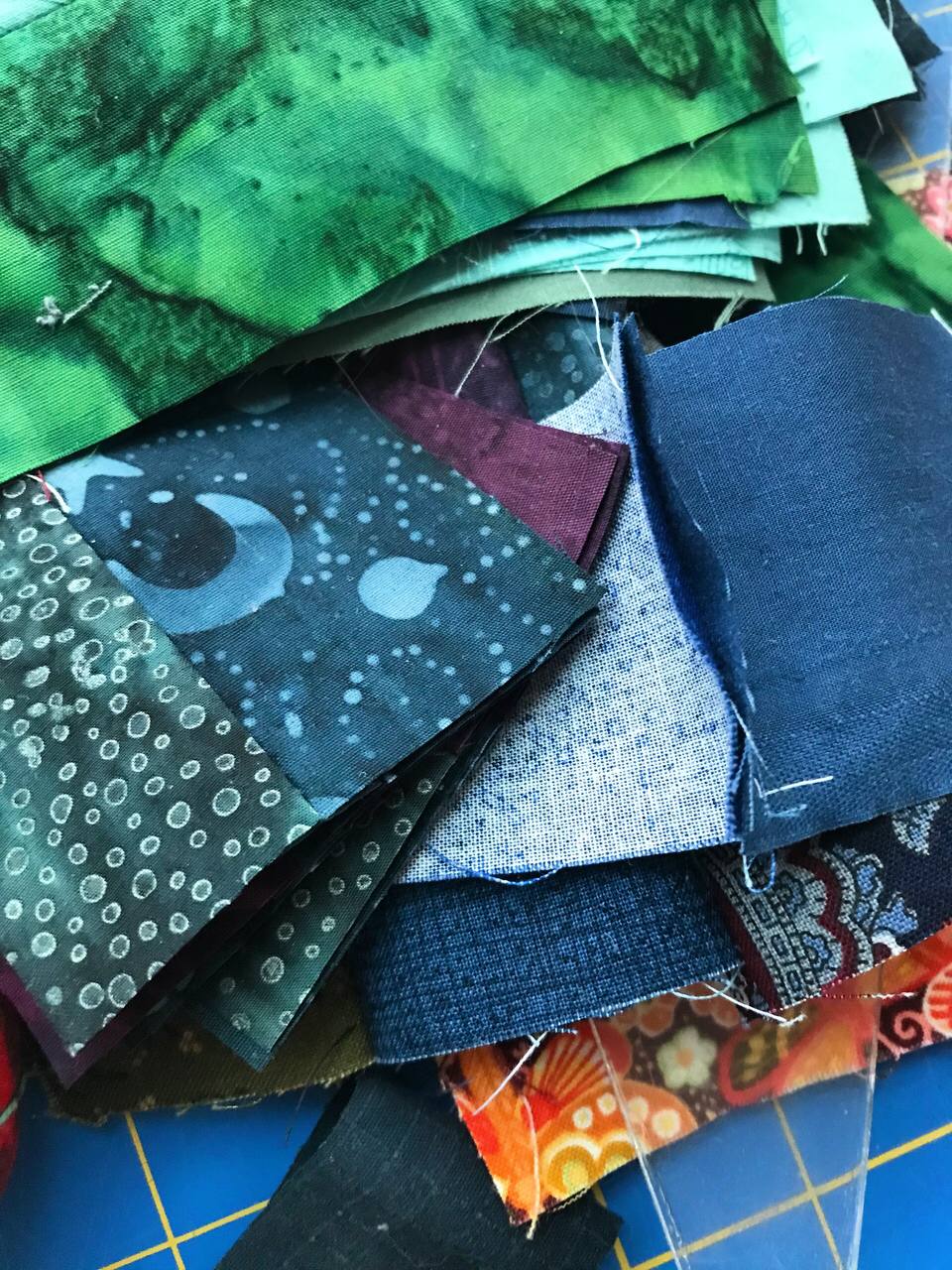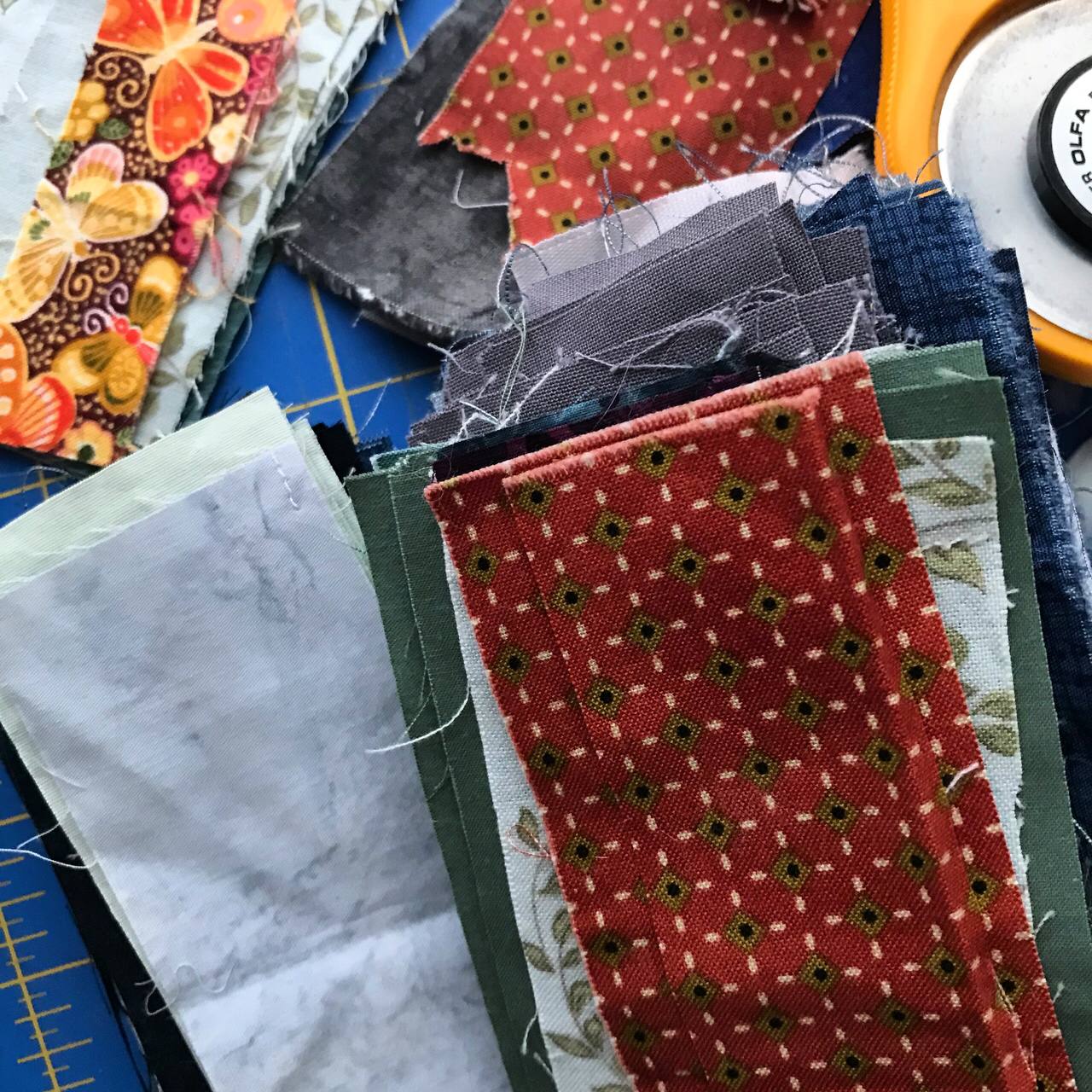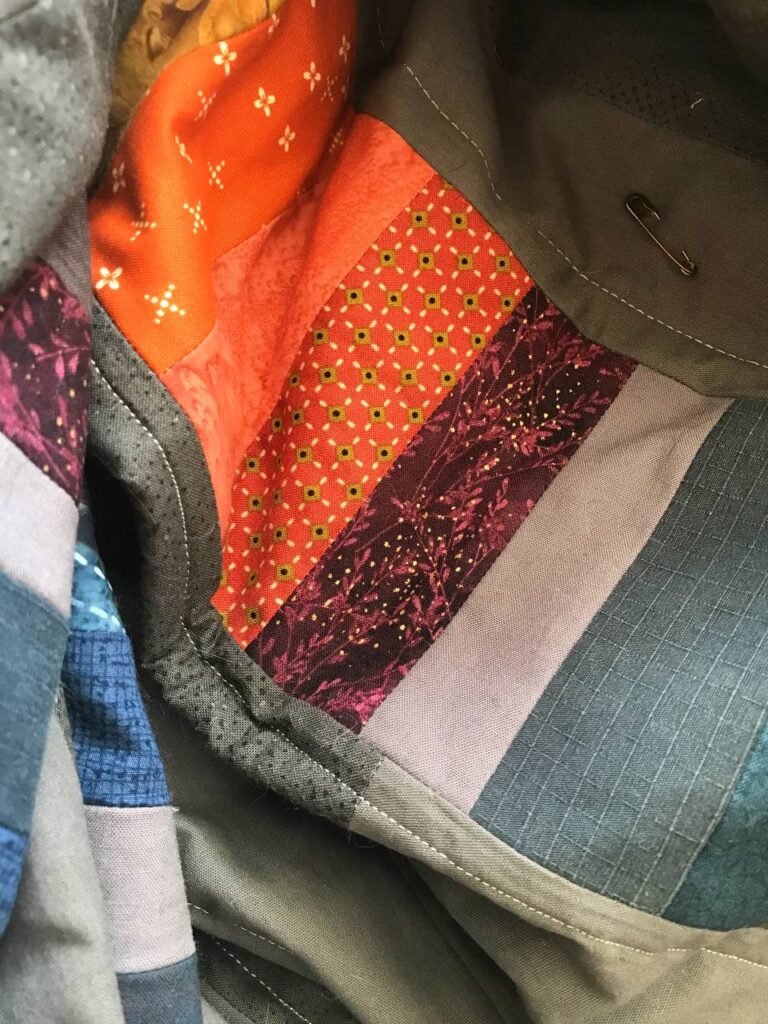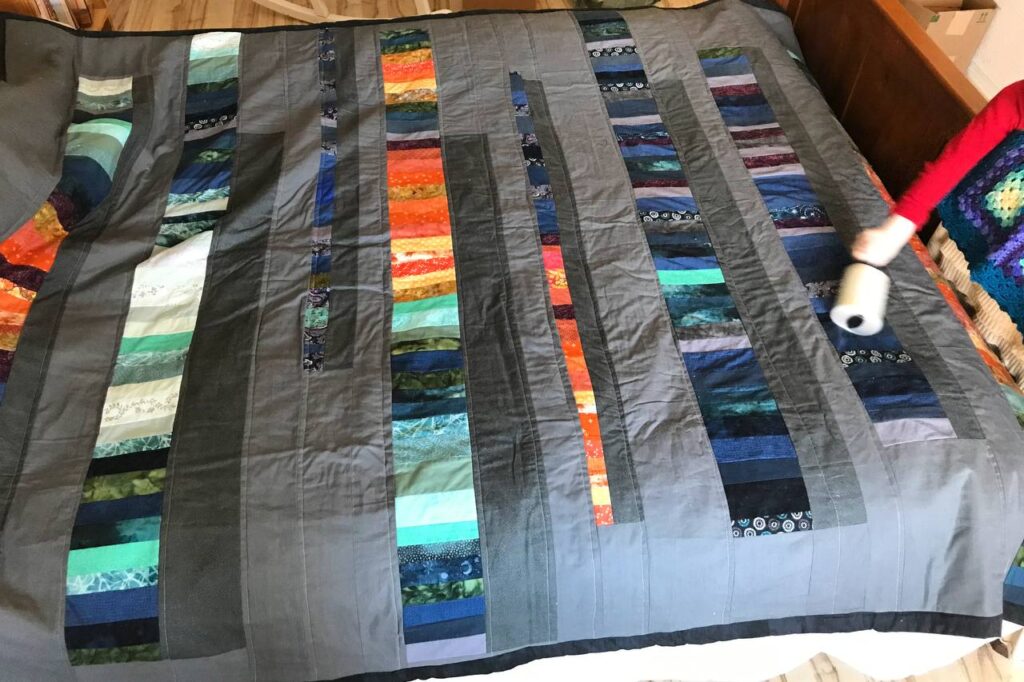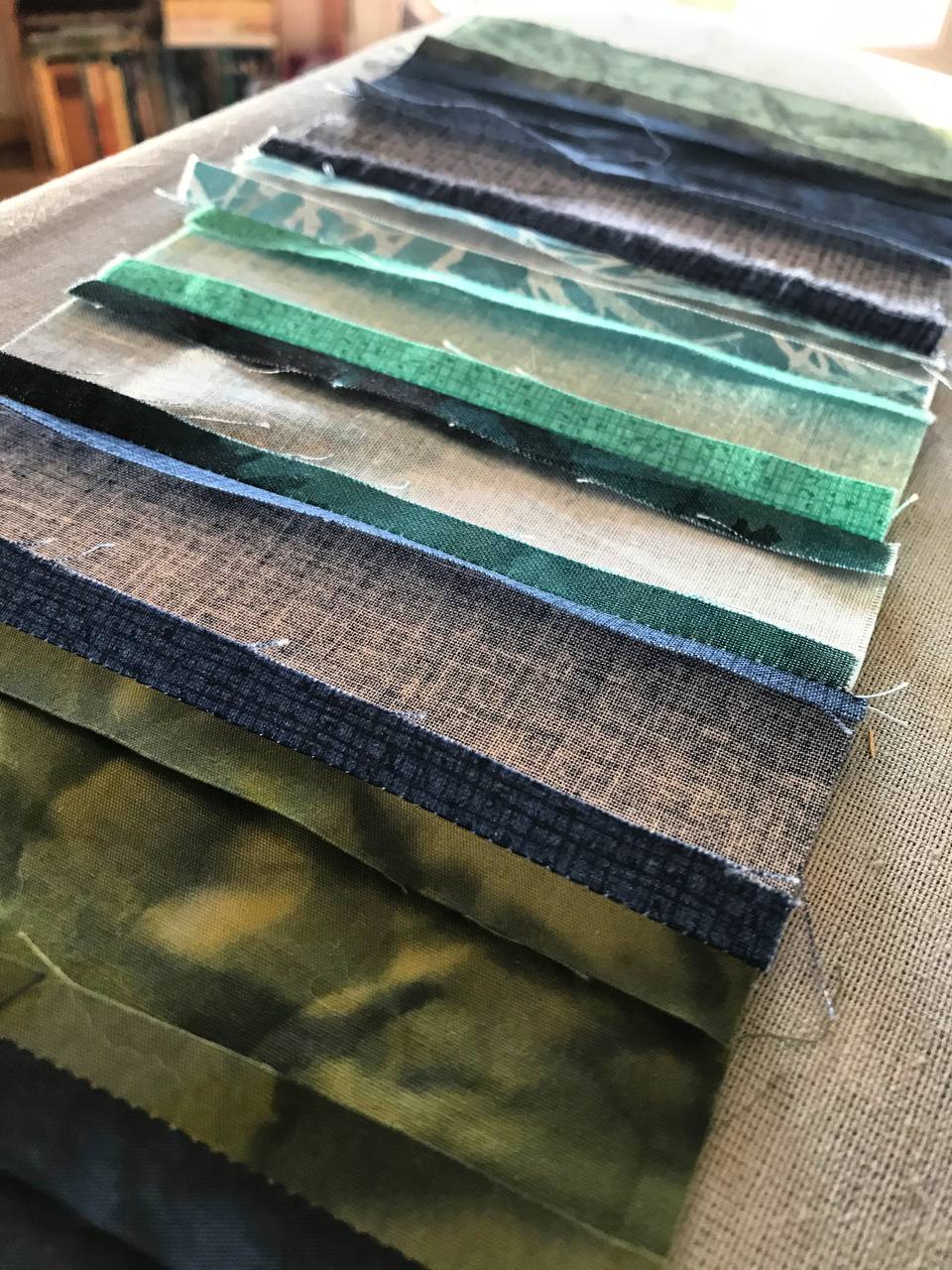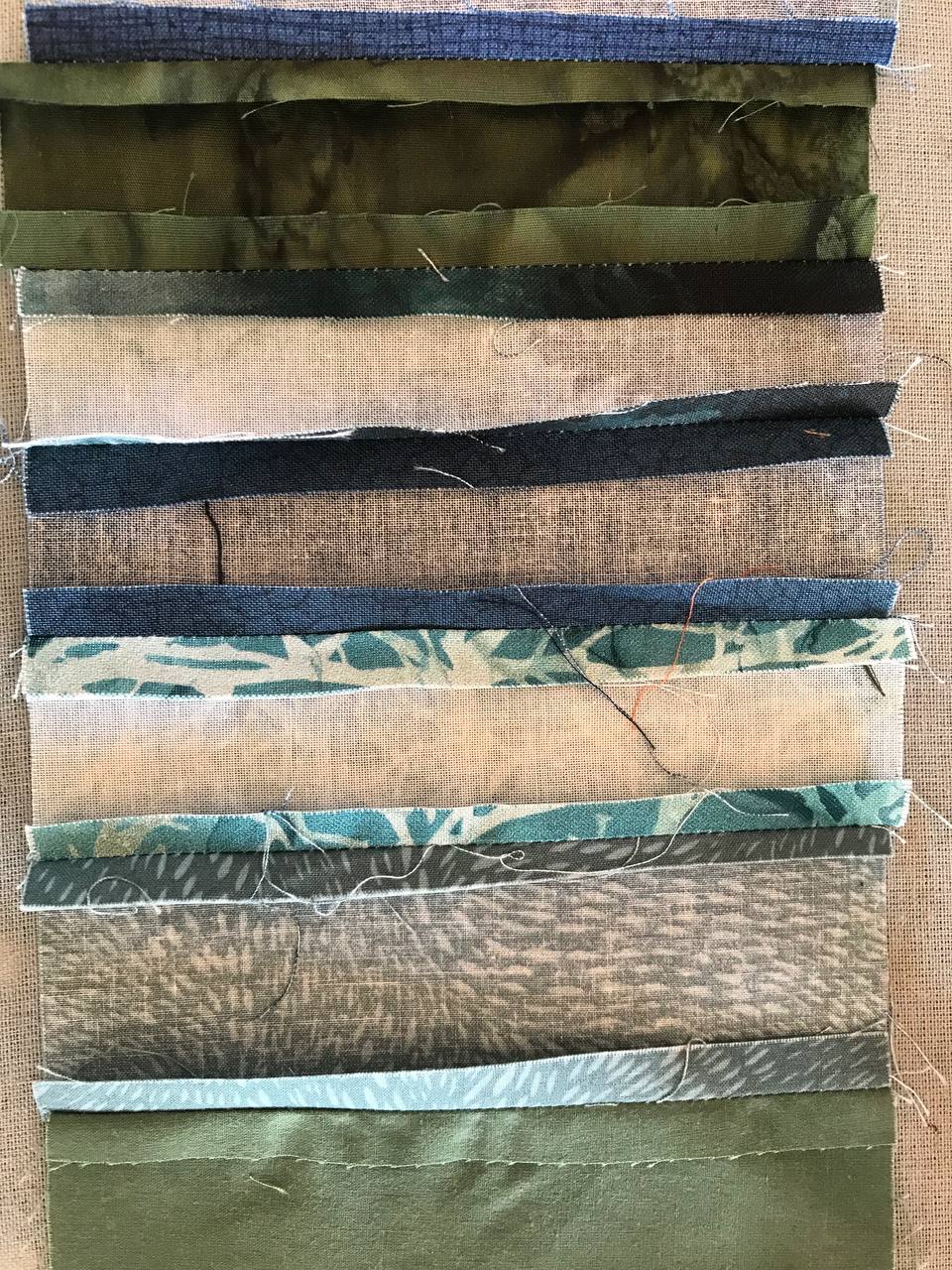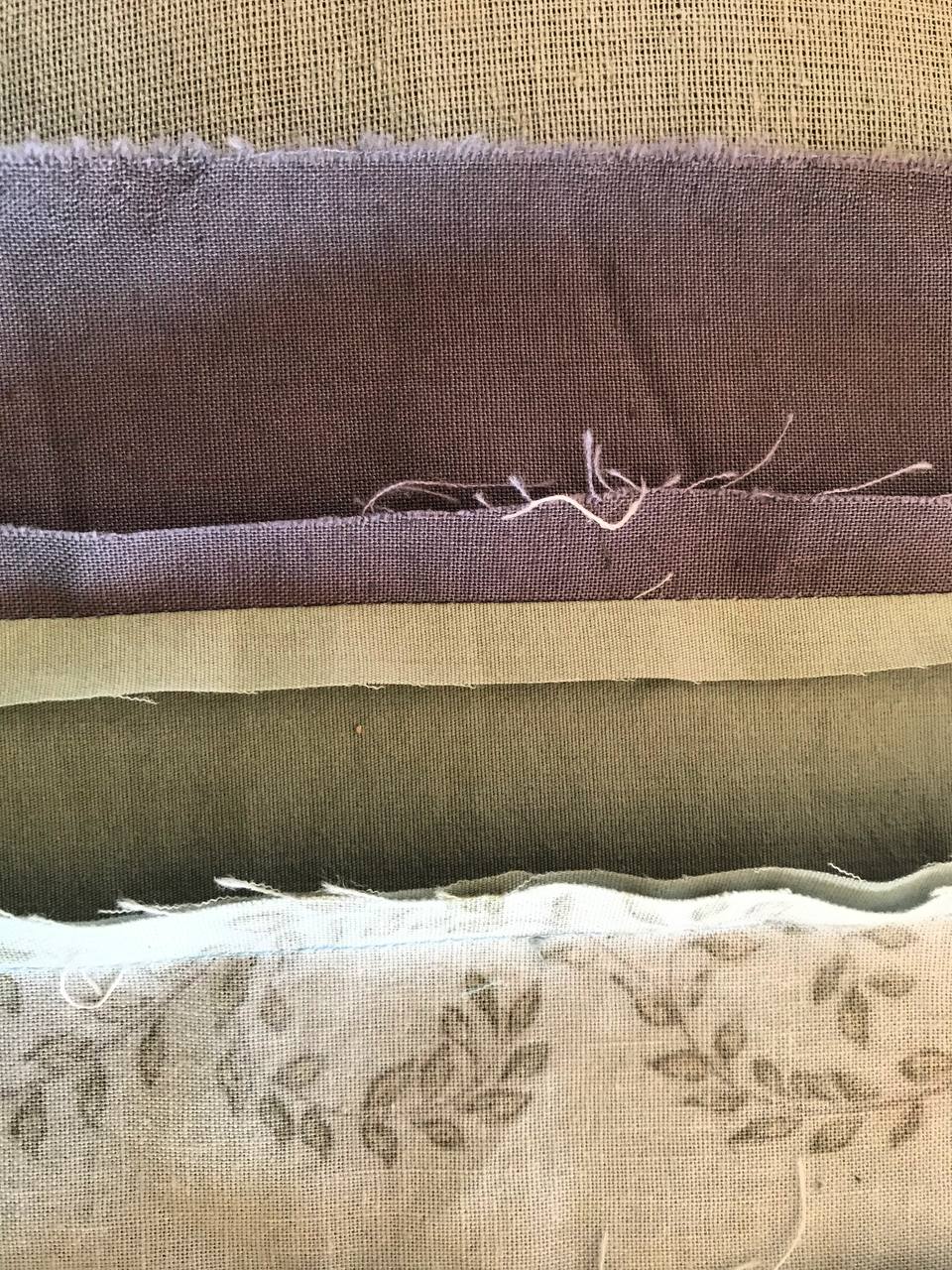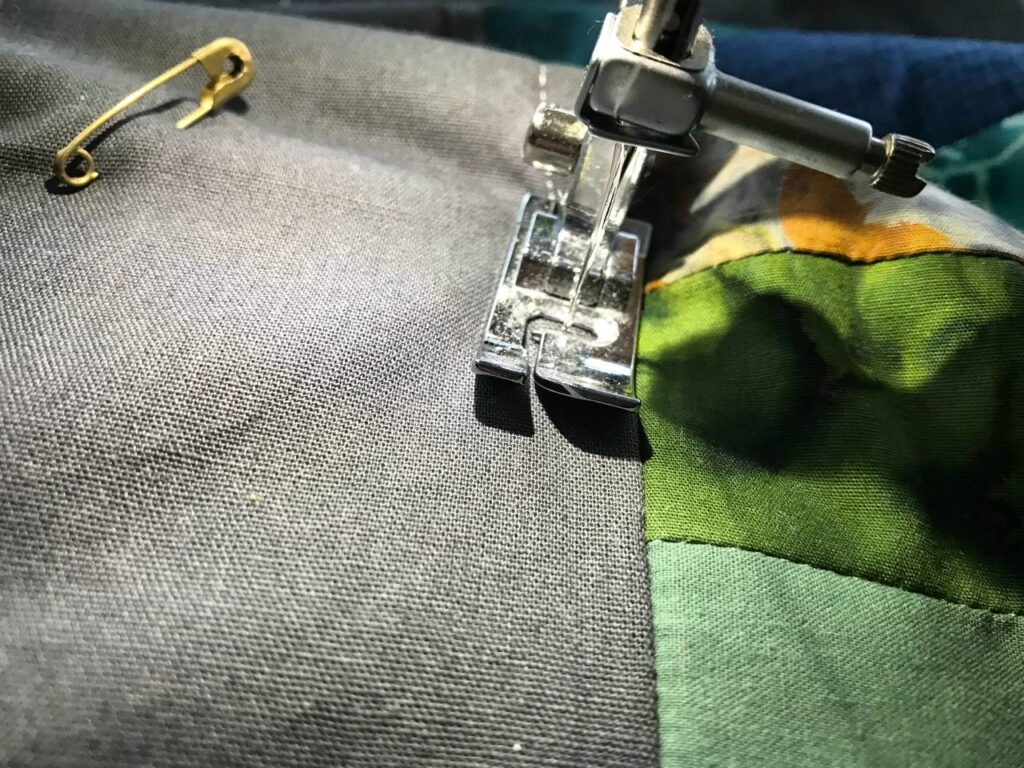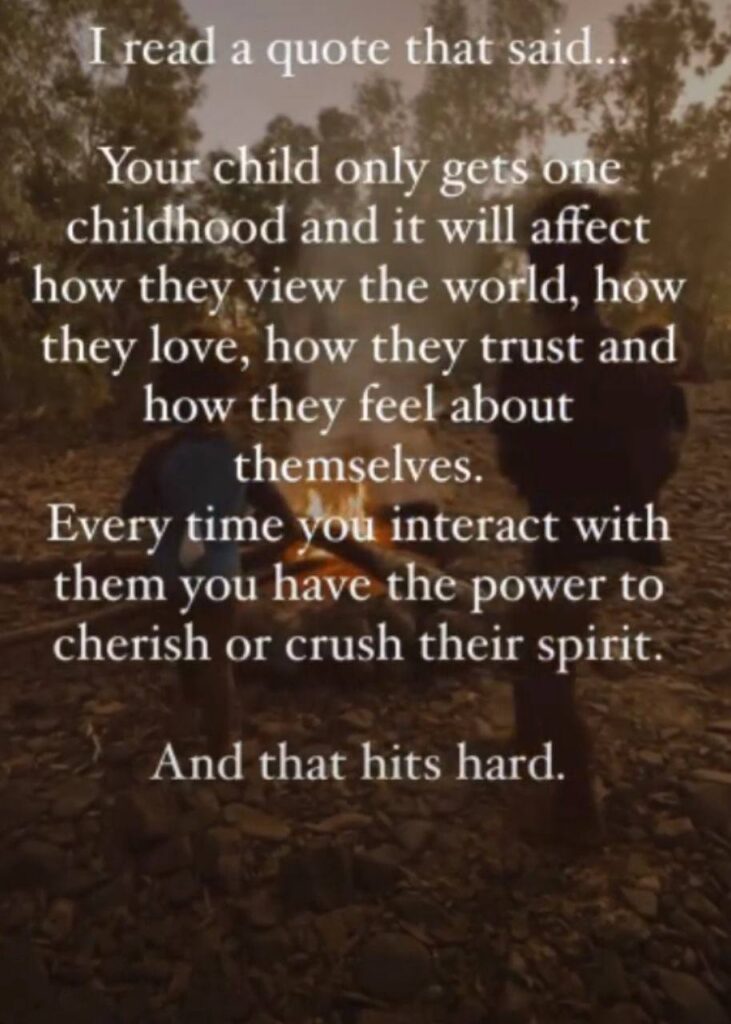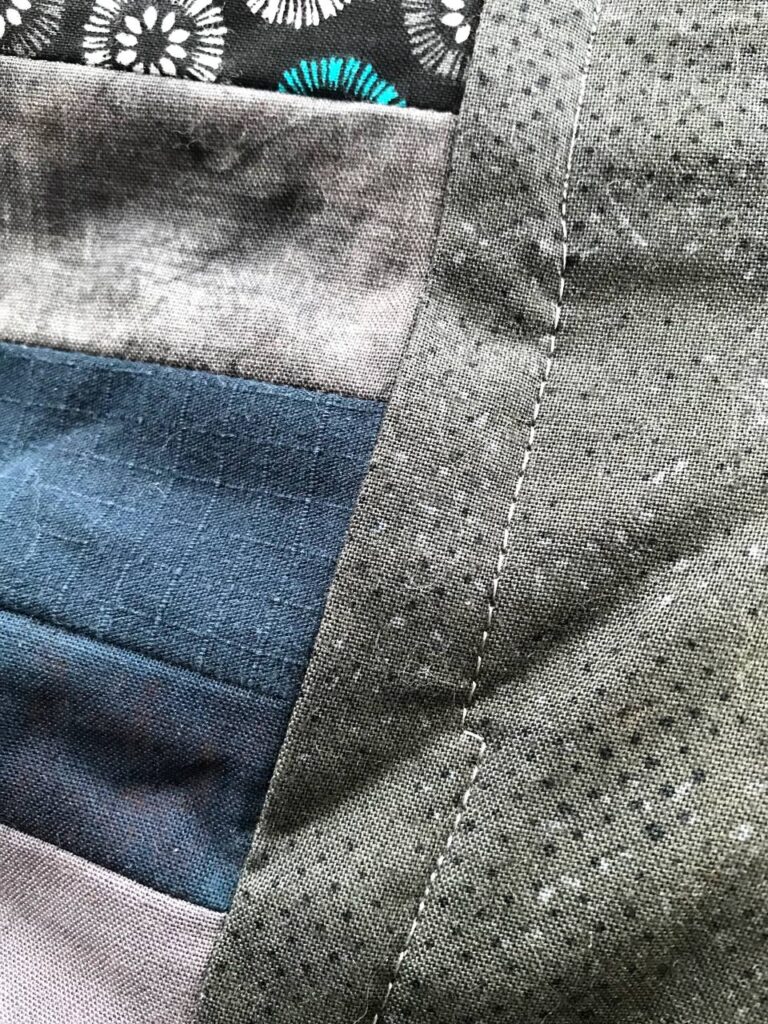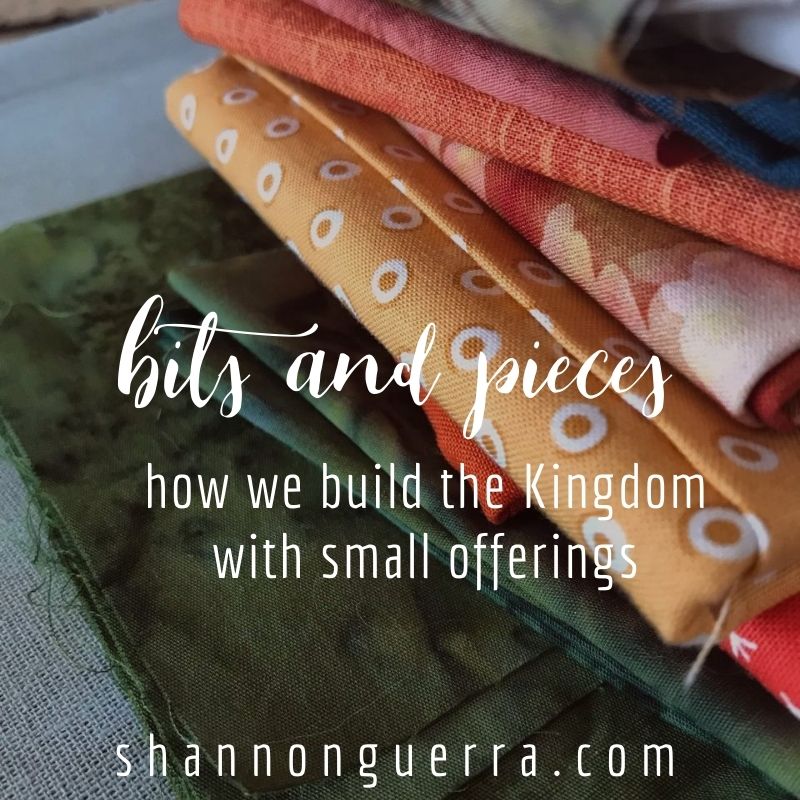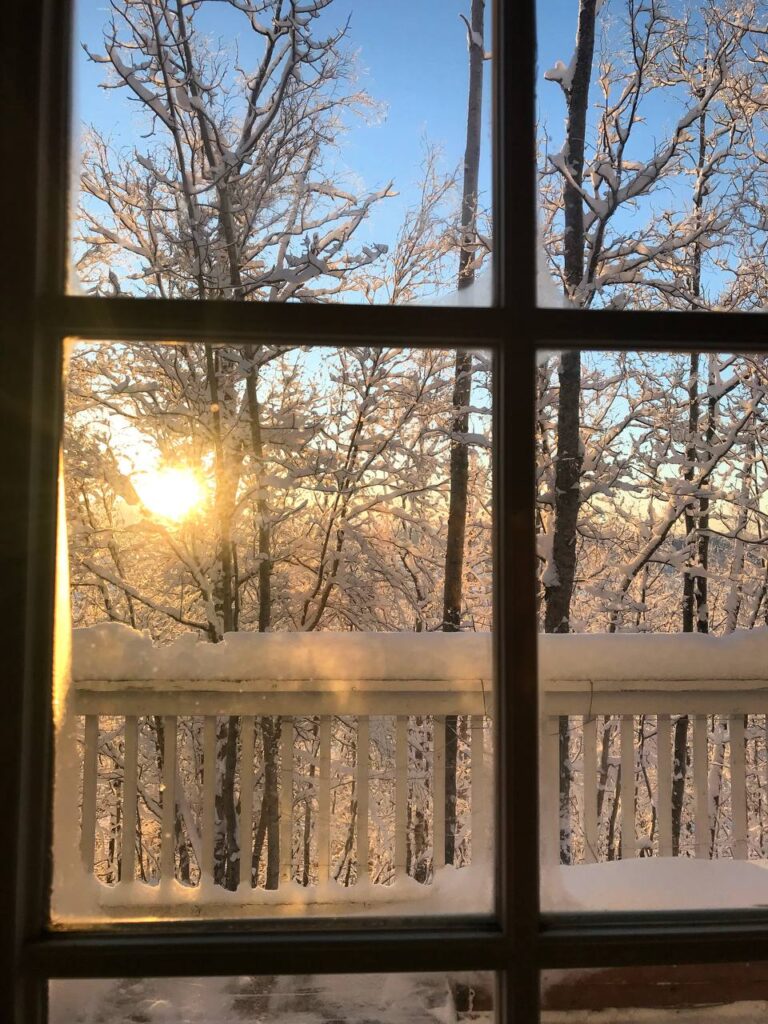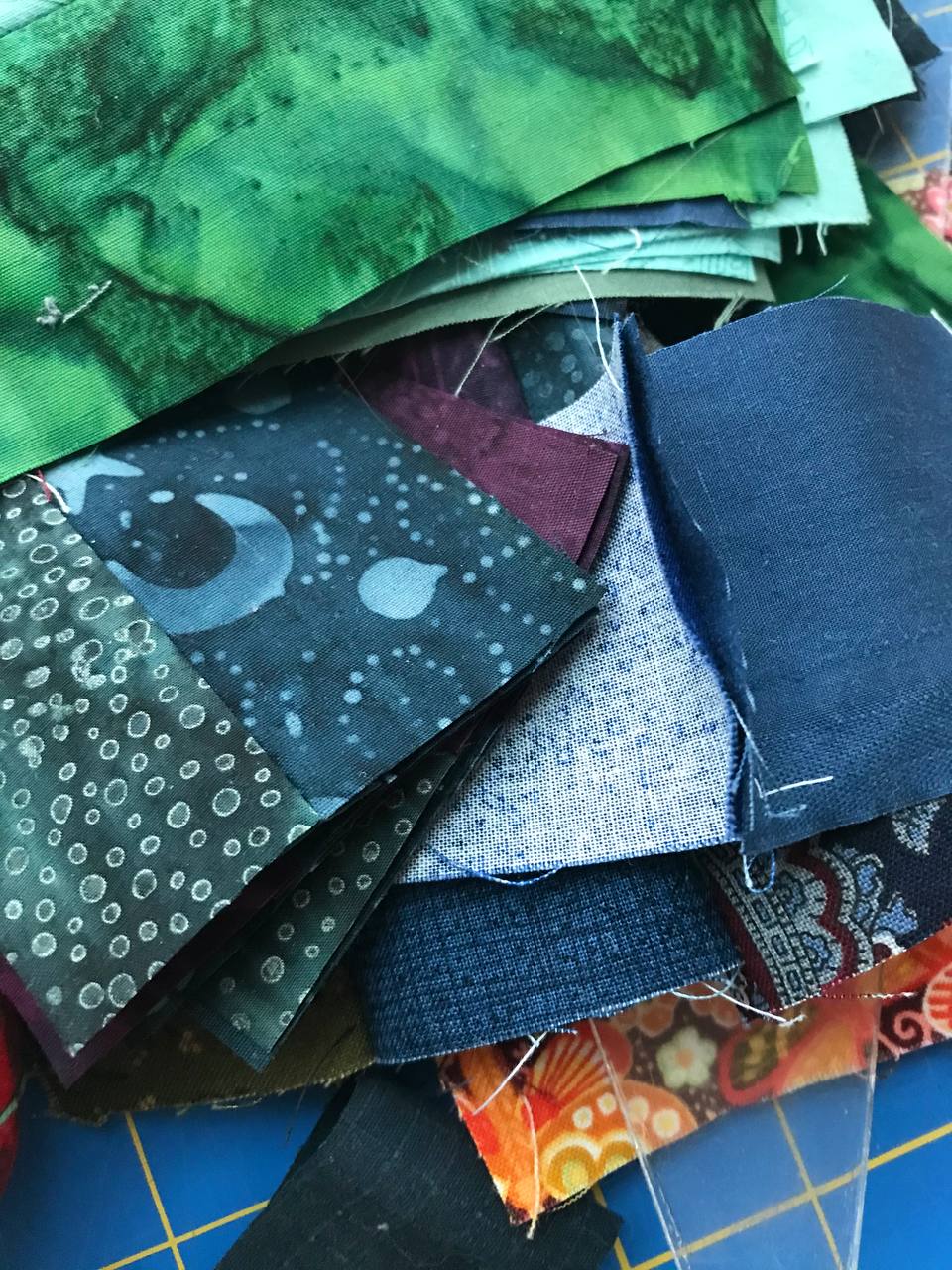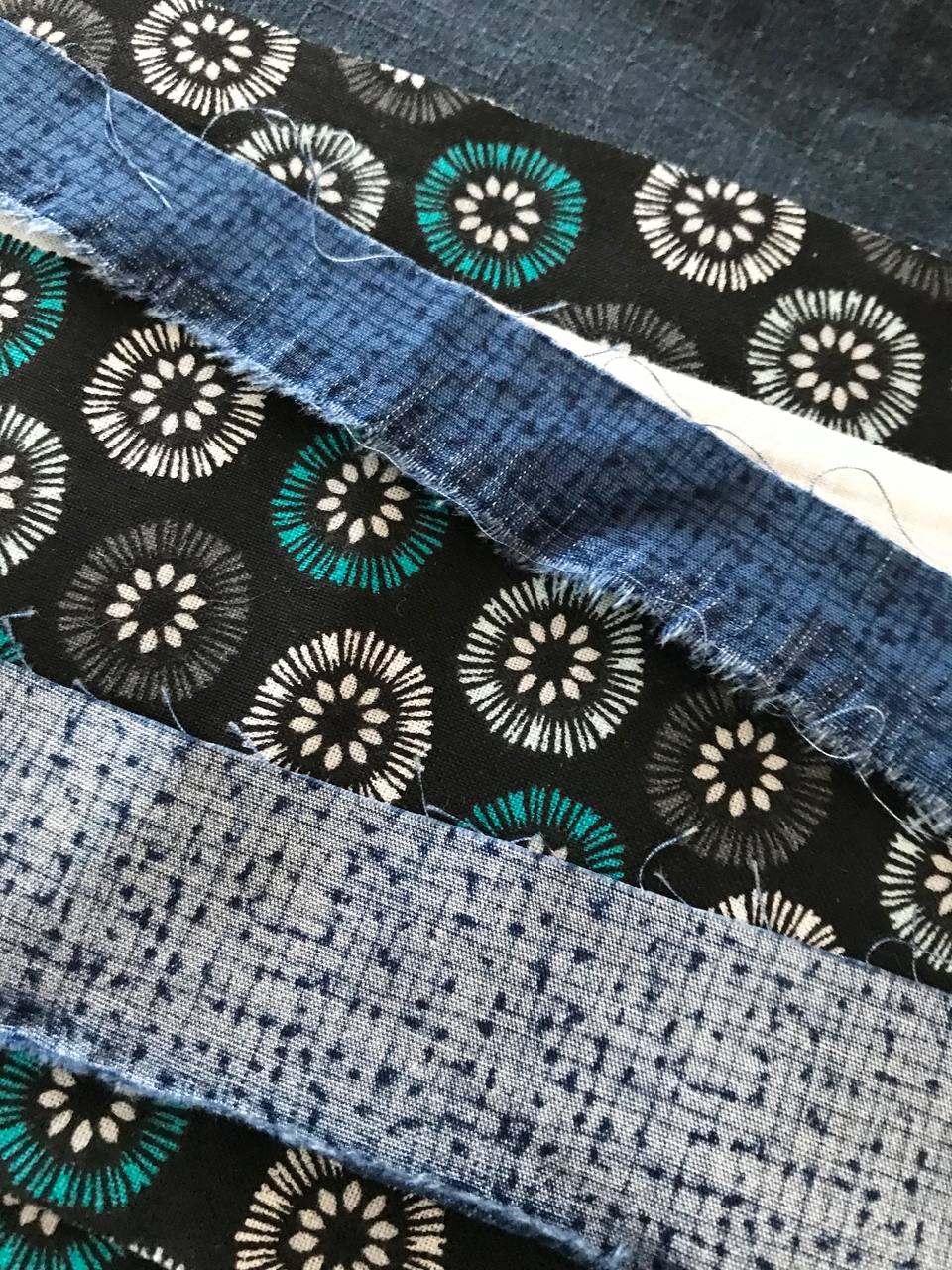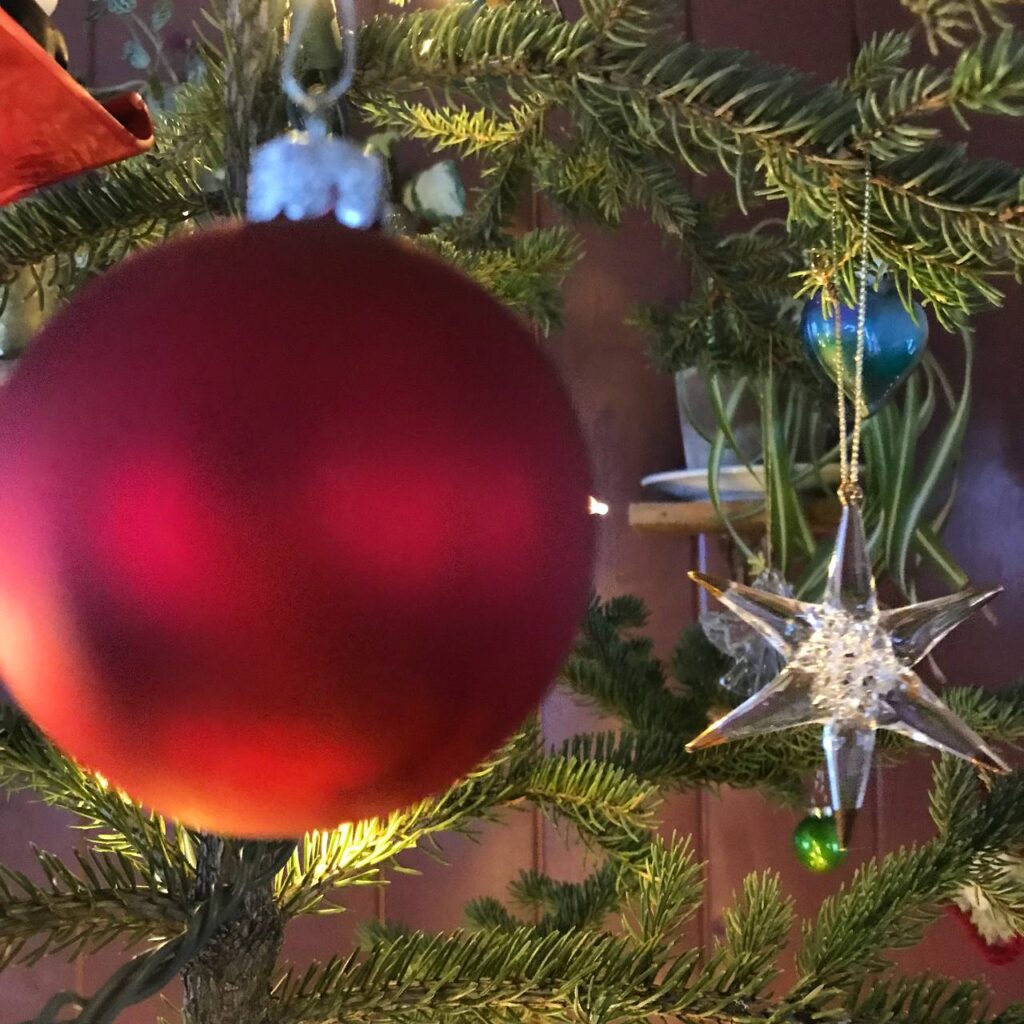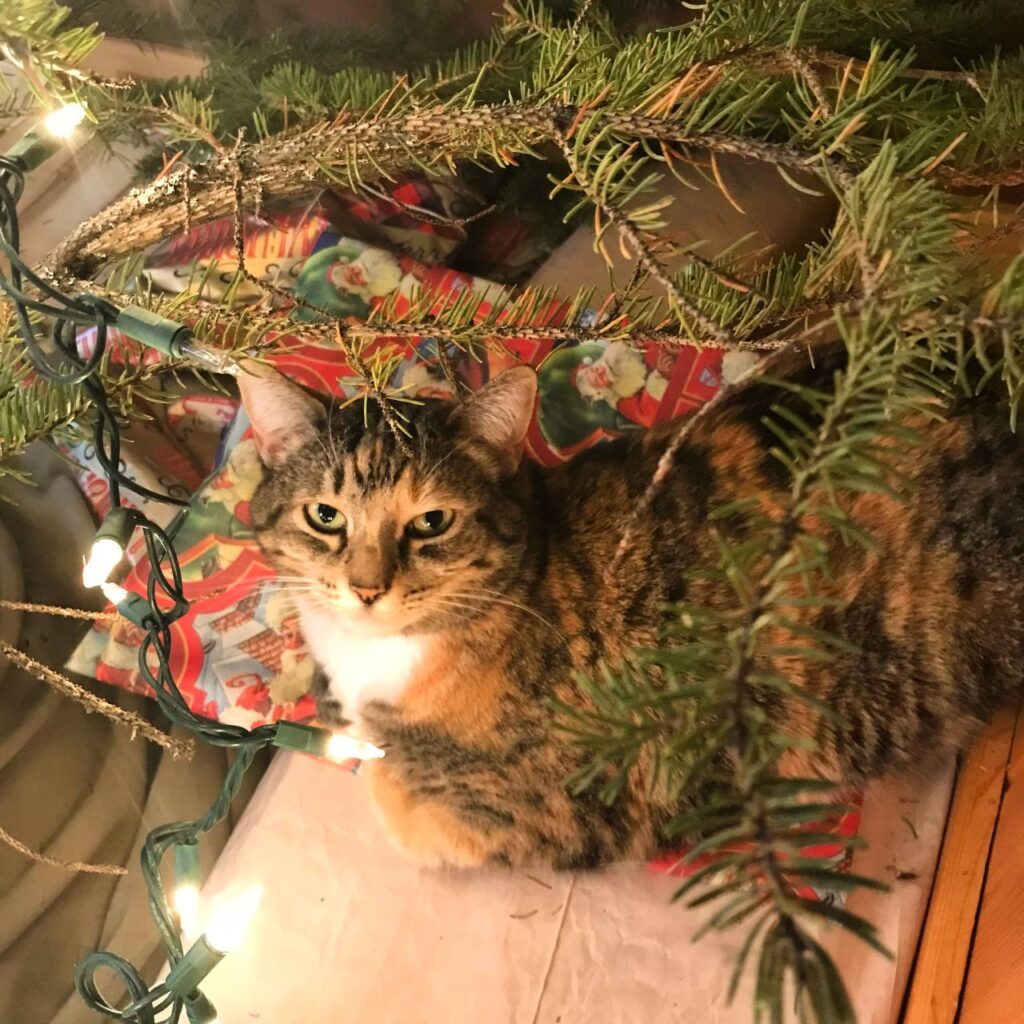I was sitting on the bed, journaling, and out of the corner of my eye I saw something move across the floor. Turned my head to look, and it was a huge spider.
My preferred method for dealing with spiders is to grab a book, hold it a few feet above the intruder, and drop it with a solid thump. Then I leave the book on the floor for Vin to take care of because I don’t want to see what’s underneath, and he’s a good sport about this…even when I use his books, not mine, to do the thumping.
(The only book of mine currently next to the bed is a clothbound copy of The Count of Monte Cristo and we do not, not, not use clothbound books to smash spiders, let the redeemed of the Lord say so.)

So I dispatched the spider with Vin’s military history book, left it on the floor by the bed, and went back to writing:
My last post is still doing its work in me, teaching me to behold joy and win through peace and gratitude. Also, I am strategically ignoring the wind and waves – those things that feel simultaneously too much and not enough – and am continuing to focus on writing His words and stewarding our home.
This verse came up last weekend in church, and it’s long been one of my favorites:
I paused to look up Matthew 8:33 – but no, that’s about herdsmen fleeing a demon-possessed man, definitely not it…tried again…ah yes, Matthew chapter six, not eight:
It’s this: But seek first the kingdom of God and His righteousness, and all these things will be added unto you.
I’ve always focused on the kingdom part and not really noticed the “and His righteousness” part, until our pastor said that “His righteousness” could also be seen as “His standards” – and the verse came alive to me in a whole new way. It seems obvious from a moral standpoint, but for the first time I also related it to His order, and beauty, and functionality, in a more domestic, home-keeping, family-nurturing, homesteaderly light.
I haven’t stopped thinking on it, how all the things are added unto us when we take care of the core issues. And I was still thinking on it when another spider crossed the floor, closer to the door this time, presumably to check on the first one.
But there weren’t any other books nearby.
I looked across the room at the bookshelves, and back near the door where the spider was. There was nothing else to be done, it was too close to getting away, so I peeled the already-used book off the floor and held it by the edges, careful to not look at the smashiness stuck to its underside. Took two steps, and WOMP, dropped it on spider #2.
Then I got a tissue and bravely (I hear you laughing, stop it) looked for the smudge of grossness on the floor from spider #1, and wiped it up. Threw the tissue in the toilet. Then grabbed three books off the shelf to keep handy, because the next offender was going to get hit with How The Irish Saved Civilization.
And I thought, Huh, that’s ironic, because that’s basically what I was journaling about, and what so many conversations have centered on lately. Not the Irish, but saving civilization.
Friends and acquaintances have been talking about redirecting their focus homeward, turning from what has somehow become normal because as Dave Ramsey says, normal is broke – not just in the sense he means, but also in the sense that forty-plus hours outside the home to meet the car payment and mortgage payment and the skyrocketing price of groceries often equates to parents and kids and spouses barely knowing each other because they spend so little real time together. Hence disconnection, and disillusion, and burnout.
Normal is broken; we do need saving.
Our culture has had all kinds of misfires in its attempts to do the right thing, depending on the current consensus of what the “right thing” actually was at the moment – provide for the family, reach the lost, raise the children, attend the church functions, train and educate for the next endeavor. All good things. But in light of “seek first the Kingdom and His righteousness, and all these things will be added unto you,” it also makes me think of Jesus saying, “Martha, Martha, you are anxious and troubled about many things, but one thing is necessary.”
And then He defended Mary, sitting at His feet. Mary, defying cultural norms and expectations, learning with the men. Mary, coming close: her eyes on Jesus, preparing to teach others about Him, seeking first the Kingdom and His righteousness.
We fight this constant sense of obligation and “ought to” that is more often just pressure than real conviction. The accusers and distractions (sometimes external, but often in our own heads) come in like so many spiders, trying to divert us from the work at hand, but only one thing is necessary.
Sometimes we feel like we ought to be doing something else because we’re subscribing to our culture’s standards and not His standards. We are a culture that likes formulas and programs, and we will often jump through all sorts of hoops rather than do the most simple, necessary task at hand that we’ve been avoiding because it isn’t the popular answer.
Prepare your work outside;
get everything ready for yourself in the field, and after that build your house.— Proverbs 24:27
We look for breakthrough and direction, but sometimes we do so while ignoring the unglamorous answers right in front of us. It has taken me a lifetime to learn that our breakthroughs don’t require us to say just the right words in just the right order, crack the code or solve the riddle, stand on your left foot for a certain number of seconds while singing the pre-determined worship song that will unlock everything once and for all.
Being asked by the Pharisees when the kingdom of God would come, he answered them, “The kingdom of God is not coming in ways that can be observed,nor will they say, ‘Look, here it is!’ or ‘There!’ for behold, the kingdom of God is in the midst of you.”
— Luke 17:20-21
We look all over, but the Kingdom is right here.
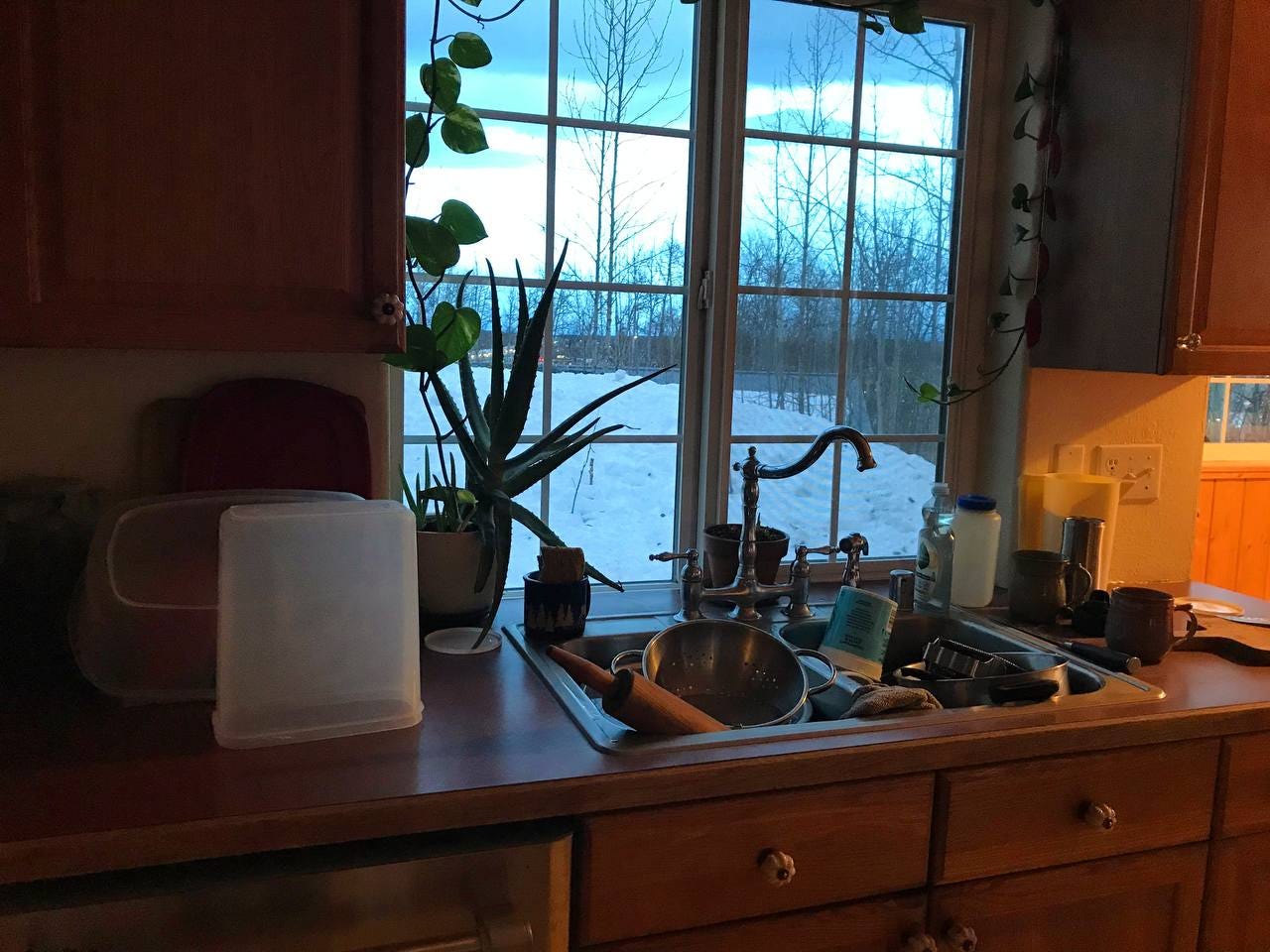
The mom who can’t raise her hands in worship because her arms are full of baby, of child, of other things, is no less engaged in worship than the person who stands up and sits down and claps at all the right times.
Having your arms full with your calling is also worship.
At the risk of stating the obvious (because sometimes we need to hear it): If you’re burnt out or sick, it might be because you’ve been so busy leading or serving others that you need to take a break to get yourself well. We can’t lead or serve others well if we’re not leading ourselves well.
That doesn’t mean you have to feel like you’ve arrived before you can lead or serve. It just means that it’s important to routinely draw back and strengthen our foundations, make sure our personal structures are sound before we miss the forest for the trees and try to serve our community. This is the heart of why we Sabbath, but it isn’t limited to just observing the Sabbath. (It’s also important to give grace to those who are different, or in different seasons than we are. What looks like rest to one of us looks like drudgery or torture to another.)
It also doesn’t mean you’ve got to have your act fully together before you can obey the Lord in whatever He’s called you to serve in externally. It just means there’s a necessary balance, because the first thing He’s calling us to is Himself. And if we’re not able to abide because our lives are so busy serving, serving, serving, and we’re out in our community so much that our home life is falling apart, our kids are falling apart, our marriage is falling apart, everything’s out of control, then it’s definitely time to draw back and strengthen those core areas.
A shadow runs across the path in front of us, and we look away from the work at hand. It needs to be squashed quickly so we can return to the one thing that is necessary.
Just to clarify, this isn’t a message about women needing to be solely domestic. We can blame radical feminism all we want but it does no good if we don’t recognize that radical feminism was an overcorrection in response to routine misogyny. Both sides have missed the mark in seeking first the Kingdom and His righteousness.
I shared this recently on social media:
If you feel stuck and aren’t sure what to do because the thing you want to do seems to have no openings or opportunities right now, put the weight of your focus on the things right in front of you or just ahead of you that you can do.
Strengthen those foundations and core areas. Build a strong spiritual structure, make the presence of God your permanent atmosphere.
Much will change in the coming months and you’ll be the better for not rushing into certain moves and changes right now.
But other things — the ones you feel Holy Spirit leading you in right now — need to be addressed immediately, and those are the things that will prepare you for the bigger moves in the long run that you can’t see the way forward in quite yet.
A voice cries:
“In the wilderness prepare the way of the Lord;
make straight in the desert a highway for our God.
Every valley shall be lifted up, and every mountain and hill be made low;
the uneven ground shall become level, and the rough places a plain.
And the glory of the Lord shall be revealed, and all flesh shall see it together, for the mouth of the Lord has spoken.”— Isaiah 40:3-5
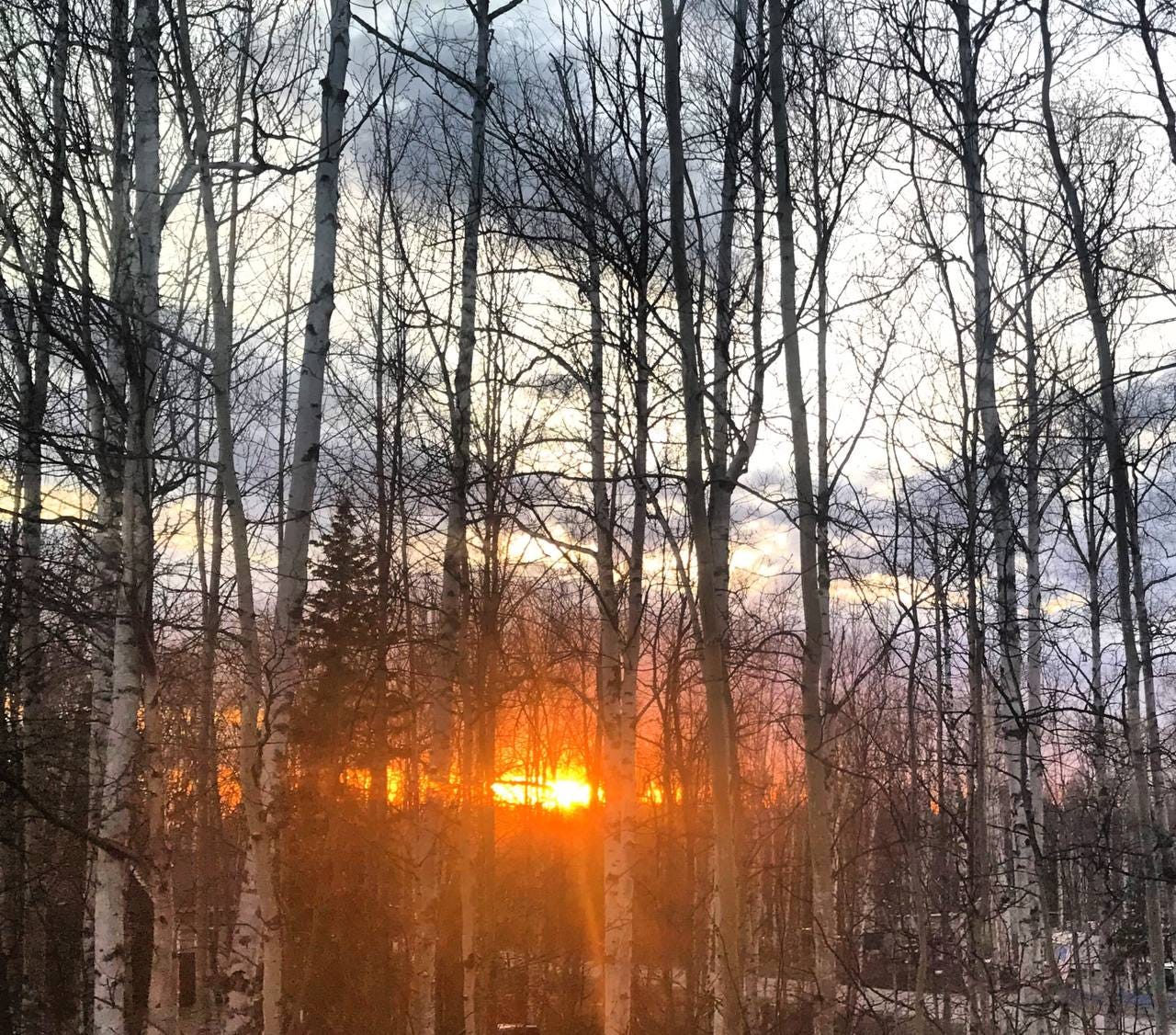
We spent part of a recent Sabbath checking our chicken paddock fencing, closing gaps, stretching the fence back to its height where it had sagged from the weight of snow. If we don’t, the chickens will get loose and predators can get in (been there, hated that).
When we were done, walking back, we talked about how this would be a good time to look for chaga before the leaves come out. (What is chaga, you ask? It grows on birch trees, great for all kinds of health issues – here you go.)
We’ve never really hunted for it before, but lots of our friends have. We walked through the woods, looking up while also trying not to trip over the roots and fallen logs at our feet, wondering how we would get to the chaga if we found any in these tall, tall trees. Even if you do spot some, it’s not the most accessible thing in the world.
“You know what would be amazing?” I said. “If that giant birch tree the neighbors cut down last year had some on it.” We’d shared our chainsaw with them, and they had shared the wood with us, but we’d already chopped and stacked our share. We kept walking, looking up, going around the trees, looking at all sides.
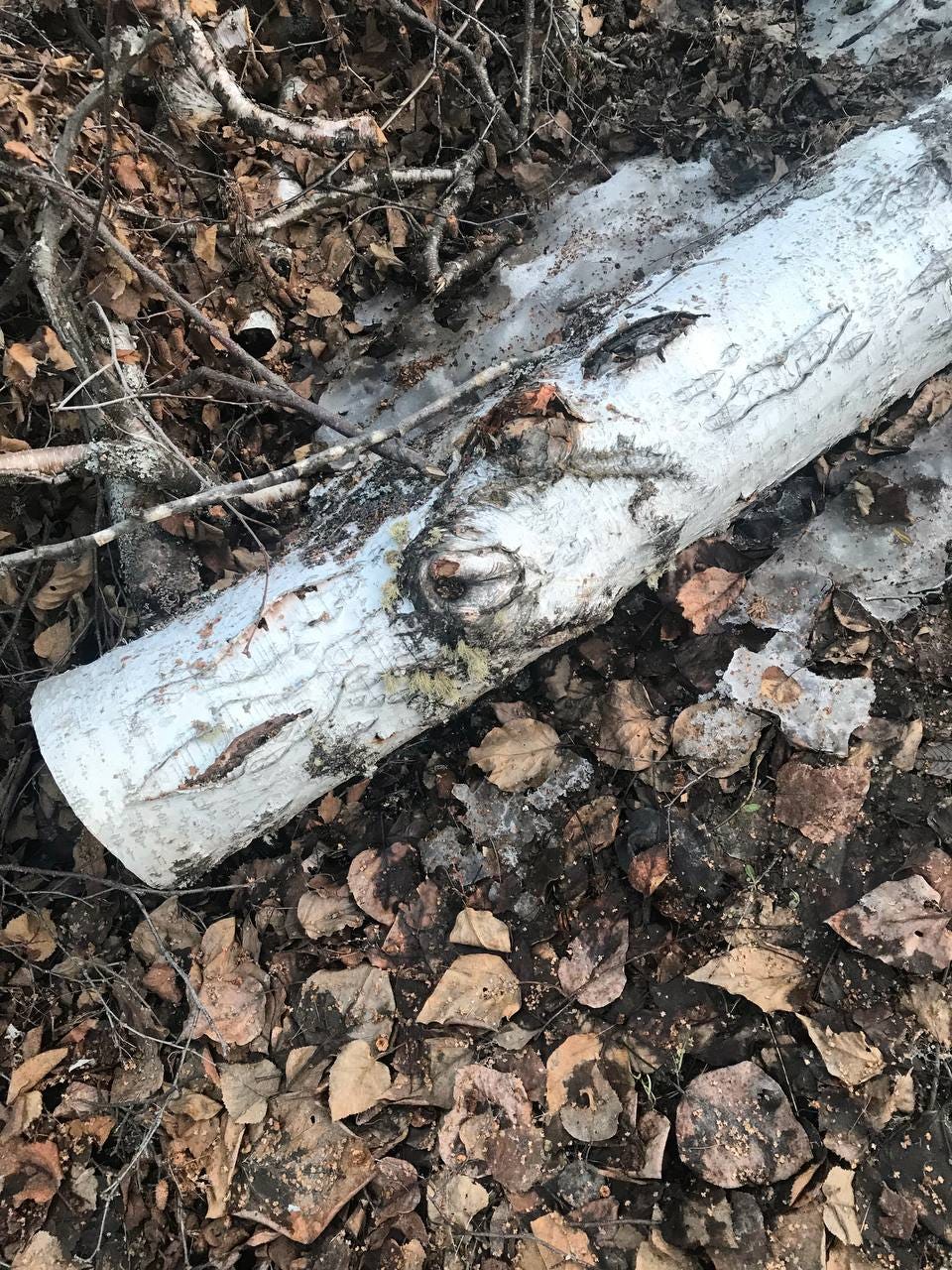
We finally reached the edge of the woods and a huge birch log lay next to the path – part of the neighbor’s tree that for some reason we hadn’t cut for firewood.
Right on the top of it, a choppy dark crust with some exposed orange under it. If you know, you know.
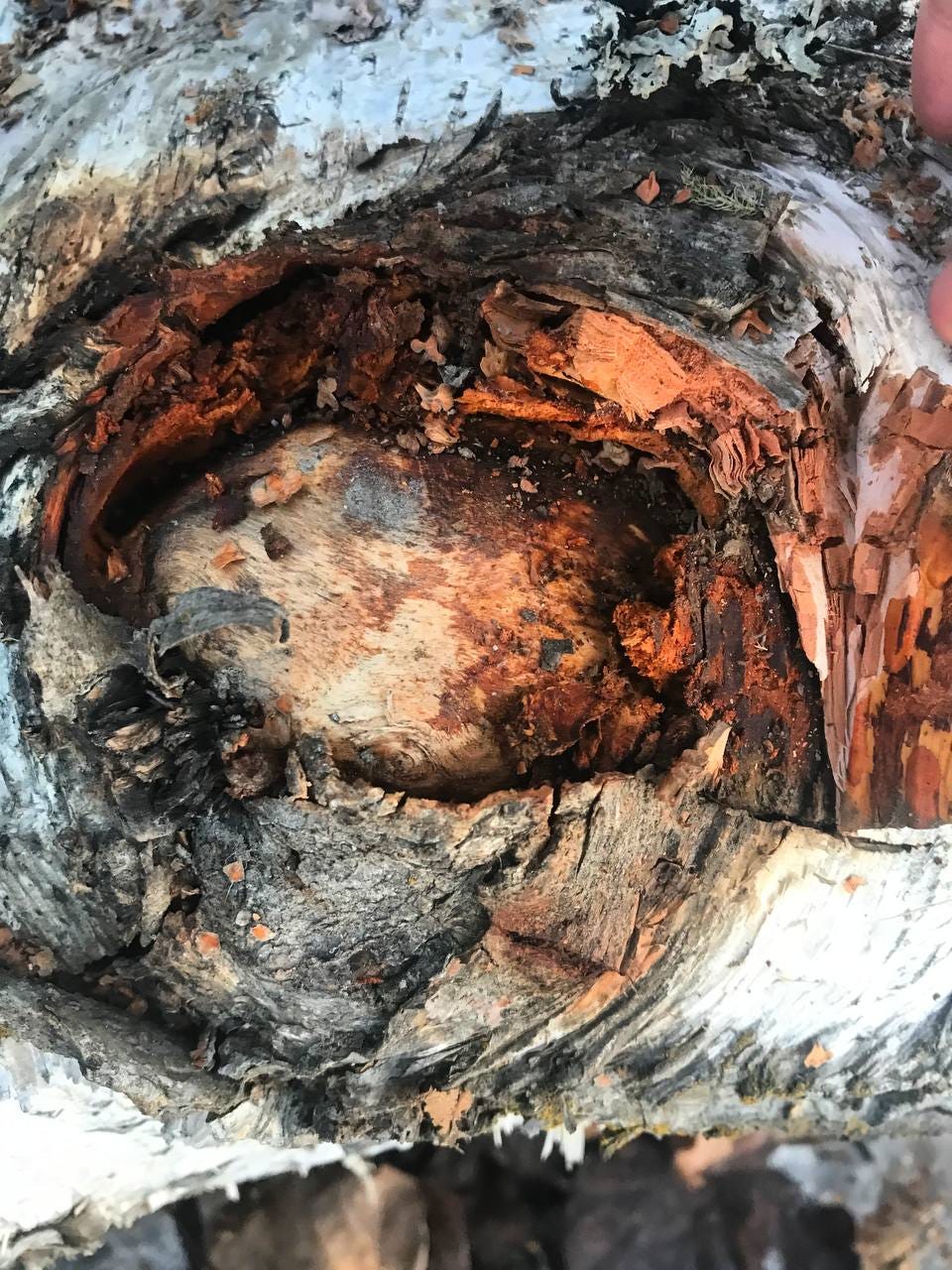
“Um, wouldn’t it be nice…” I repeated, “if there just happened to be chaga on the tree that was already cut down…like, right in front of us…”
Wouldn’t it be nice if the thing we’re seeking really is what’s closest at hand?
It wasn’t a large piece, but it was right there. No climbing, no striving required. Just right in front of us, waiting to be found.
Want more posts like this? Subscribe here.
P.S. It’s been a while since I updated y’all on some things, so here you go:
- Looking for more homesteaderly content? Here’s our fun new gig: short posts on sustainability in small bites, everything from chaga to chickens.
- If you feel stuck and need someone to help you move forward in this season, I may have a slot available for coaching — and if I’m currently booked up, there’s a waiting list. Info here.

